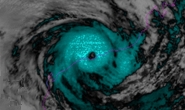Government/Policy

September 14, 2020
Iowa Senators Seek Section 232 Exclusion to Rebuild After Storms
Written by Sandy Williams
Iowa farmers are complaining that tariffs are causing opportunists to raise steel prices for materials needed to rebuild following the devastating derecho storm that damaged farms last month. Senate Finance Committee Chairman Chuck Grassley (R-Iowa) and Sen. Joni Ernst (R-Iowa) penned a letter to Secretary of Commerce Wilbur Ross asking that Section 232 tariffs be lifted on any steel used in Iowa’s rebuilding, especially steel used in construction projects, grain bins, machine sheds and agricultural machinery.
 “In the wake of this catastrophe, opportunists are offering extremely high estimates to Iowans for the steel they need to rebuild their homes, farms, businesses and communities. A number of farmers have told us that the increased prices for steel would collectively add hundreds of millions of dollars in costs for them. This can’t happen,” said the senators.
“In the wake of this catastrophe, opportunists are offering extremely high estimates to Iowans for the steel they need to rebuild their homes, farms, businesses and communities. A number of farmers have told us that the increased prices for steel would collectively add hundreds of millions of dollars in costs for them. This can’t happen,” said the senators.
Grassley and Ernst said the state clearly meets the criteria for an exclusion from steel tariffs: 1) when there “is not a sufficient and reasonably available amount” of a steel product, or 2) there exists a “national security consideration warranting an exclusion.”
“We can assure you that you don’t need paperwork or more than a moment to see that either of your Department’s criteria is met here. When Americans can be taken advantage of after a natural disaster as we are seeing in Iowa, there clearly isn’t enough supply. And every day our farmers have to wait to get back to farming (and feeding our people) is a day our national security is weaker rather than stronger.
“Accordingly, you can – and should – immediately exclude the tariffs for steel going to Iowa’s recovery, or for recovery from any other natural disaster for that matter.”
Grassley and Ernst concluded, “Iowans are a tough and resilient people. They have built back before – and they will do so again. But there is no reason to make it any harder than it needs to be. You have the power to help Iowans quickly and effectively. In fact, your staff has often said that one reason they need broad authority under the current Section 232 law is to have the flexibility in case of an emergency.
“Well, there’s clearly one now. We, and other members of Congress, will be watching your response closely. We expect you to rise to the task.”







